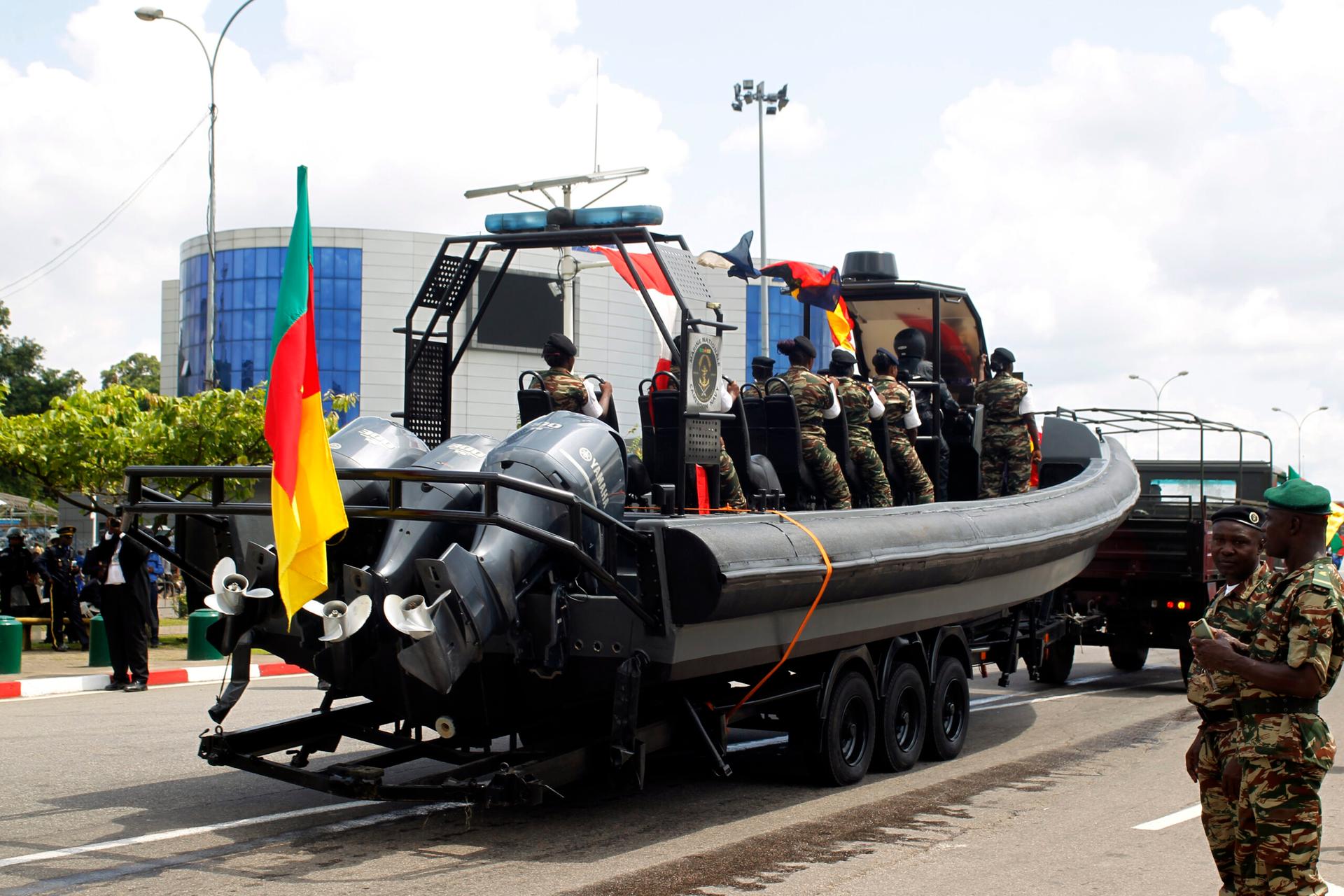YAOUNDÉ, Cameroon – Unidentified gunmen are demanding $42,750 in ransom payment as a condition for releasing Father Valentin Mbaïbarem from captivity.
The parish priest of St. John the Baptist Madingring Parish of Garoua Archdiocese in Cameroon’s Far North region was kidnapped on May 7, along with five other people. He was taken on the road between Guidjiba and Tcholliré in Cameroon’s northern region.
According to the Diocesan Chancellor, Father Emmanuel Bonkou, one of the hostages-a teacher has been killed. The others have been released.
“Only Father Mbaïbarem remains in captivity, and the abductors are demanding 25 million FCFA (US$42,750) for his release,” he said.
Archbishop Faustin Ambassa Ndjodo of Maroua has implored the faithful to pray for the speedy and unconditional release of the priest.
He implored the intercession of the Virgin Mary – “The Mother of all Prayers” – to secure the release of the priest.
News of the priest’s kidnapping has set the internet alight. Reacting to the archbishop’s announcement that the priest had been taken, Facebook user, Cherub Zion said: “God of heaven you never abandoned your true servants. At this stage do not allow the kingdom of darkness to mock us, May your servant get his way home.”
Maggi Ngwang said “Father, protect him and bring him back.” Fai Moses called on God to let his word “reach the kidnappers through him [the kidnapped priest]. Just keep him safe.” And Rita Lehnjoh added, “Heavenly Father touch the hearts of those holding him to release him.”
Although the identities of the kidnappers have not been revealed, it is suspected that they belong to the Islamist group, Boko Haram.
The group began its murderous campaign in Nigeria in 2009, but has since spread its activities to neighboring Cameroon, Chad, and Niger. It has resulted in at least 350,000 deaths, according to the United Nations, some of the deaths triggered by the undirected causes such as food insecurity and lack of healthcare.
Boko Haram literally means “Western education is forbidden,” but its larger aim has been to institute a caliphate across the Sahel.
During a recent visit to the Far North region, Cameroon’s Minister of Territorial Administration claimed that “the situation was under control.”
Bishop Barthélemy Yaouda Hourgo of Yagoua doesn’t agree, telling Crux that the security situation has been “worsening.”
He cited a March 25 Boko Haram attack on a military base in Wulgo, near the Nigerian border during which 20 Cameroonian soldiers working with the Multinational Joint Task Force, were killed.
The Cameroon Defense Ministry admitted that the attackers used “advanced weaponry they increasingly have at their disposal.”
The weapons included drones loaded with explosives. Their release triggered a fire that damaged military vehicles and homes in the town. It was the first time drones with explosives targeted Cameroonian soldiers amid the country’s battle against Boko Haram and other Islamic State groups.
The Yagoua bishop told Crux that the attack was a sign that the insurgents might have hibernated, but this was only meant to prepare and come back with more lethal force.
“They now have access to drones,” he said.
It’s a reality that is not lost on regional leaders. In a recent interview on Russian State Television, the President of Burkina Faso, Ibrahim Traore, made a similar admission but insinuated that the drones were being supplied by western powers.
However, running such an insurgency is quite costly. Authorities in Cameroon say they have been working with regional forces to cut off the sources of funding for the insurgents.
Hourgo said kidnapping and demands for ransom has become a fashionable way by which the insurgents make money to fund their war.
“When insurgents know you have some money-maybe you have sold your cows or crops, they come for you. If they can’t get you, they get your wife, your kids- they take anyone they know you love, and then ask you to pay a ransom to secure their release. It’s a whole industry,” the bishop said.
Education, Work – the answer to Boko Haram
Top military officers fighting Boko Haram in Cameroon’s Far North region have admitted that young Cameroonians have been joining the terrorist organization. The reason has been a lack of opportunity.
“If you give people the same opportunities-the same access to education and access to jobs, I believe this scourge could be significantly reduced,” Hourgo told Crux.
It’s a point also made by the Bishop of Maroua-Mokolo in the far north of Cameroon during a recent interview with the Pontifical charity, Aid to the Church in Need.
“It’s not weapons that will solve the problem of Boko Haram,” he said.
“The first thing is formation and work. If young people have prospects, it will be difficult for Boko Haram to recruit new members and brainwash them,” he explained.











